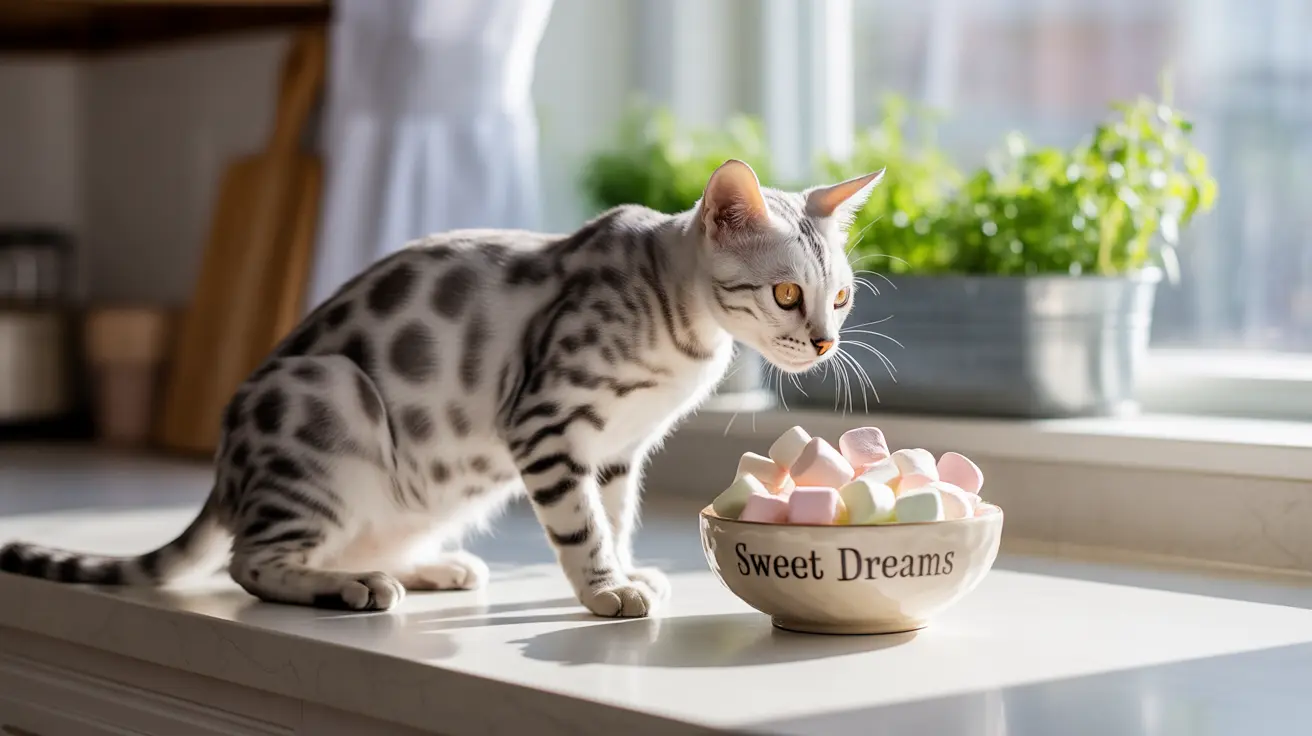Why Cats and Marshmallows Don't Mix
Cats are obligate carnivores, meaning their bodies are designed to process and utilize nutrients primarily from meat sources. Unlike humans, cats lack the ability to taste sweetness and have no biological need for sugary treats like marshmallows.
The main ingredients in marshmallows - sugar, corn syrup, and gelatin - offer zero nutritional benefits to cats and can potentially cause several health issues.
Health Risks of Feeding Marshmallows to Cats
Choking Hazards
The sticky, gooey texture of marshmallows poses a significant choking risk for cats. Their small throats can easily become blocked by the marshmallow's consistency, potentially leading to a life-threatening emergency.
Digestive Issues
Cats' digestive systems aren't equipped to process sugary, processed foods like marshmallows. Consumption can lead to:
- Stomach upset
- Vomiting
- Diarrhea
- Gas and bloating
Long-term Health Concerns
Regular exposure to sugary treats like marshmallows can contribute to:
- Obesity
- Diabetes
- Dental problems
- Heart disease
- Joint issues
What to Do If Your Cat Eats a Marshmallow
If your cat manages to eat a marshmallow, don't panic. Take these steps:
- Monitor for choking signs
- Watch for digestive upset
- Ensure fresh water is available
- Contact your vet if concerning symptoms develop
Safe Treat Alternatives for Cats
Instead of marshmallows, consider these healthy options:
- Commercial cat treats formulated for feline nutrition
- Small pieces of cooked, plain chicken or fish
- Freeze-dried meat treats
- Dental health treats designed for cats
Prevention Tips
To keep your cat safe:
- Store marshmallows and other sweets in sealed containers
- Keep treats out of your cat's reach
- Educate family members about appropriate cat treats
- Maintain a consistent, healthy feeding routine
Frequently Asked Questions
Can cats safely eat marshmallows or are they harmful?
While marshmallows aren't toxic to cats, they are considered harmful due to their high sugar content, choking risk, and potential to cause digestive issues. It's best to avoid feeding marshmallows to cats entirely.
What health risks do marshmallows pose to cats if ingested?
Marshmallows can cause choking, digestive upset, obesity, diabetes, and dental problems in cats. Their high sugar content and artificial ingredients can lead to both immediate and long-term health issues.
How should I respond if my cat accidentally eats a marshmallow?
Monitor your cat for signs of choking or distress. Watch for digestive upset symptoms and ensure they have access to fresh water. Contact your veterinarian if concerning symptoms develop.
Why are marshmallows a choking hazard for cats?
Marshmallows' sticky, gooey texture can easily become lodged in a cat's throat. Their small airways and inability to properly chew such substances make them particularly vulnerable to choking.
What are better treat alternatives to marshmallows for cats?
Better alternatives include commercial cat treats, small pieces of cooked meat, freeze-dried meat treats, and specially formulated feline dental treats. Always choose treats specifically designed for cats' nutritional needs.
Remember, the best approach to treating your cat is to stick with specially formulated feline treats that support their carnivorous dietary needs and overall health. While marshmallows might be a favorite human indulgence, they have no place in your cat's diet.






